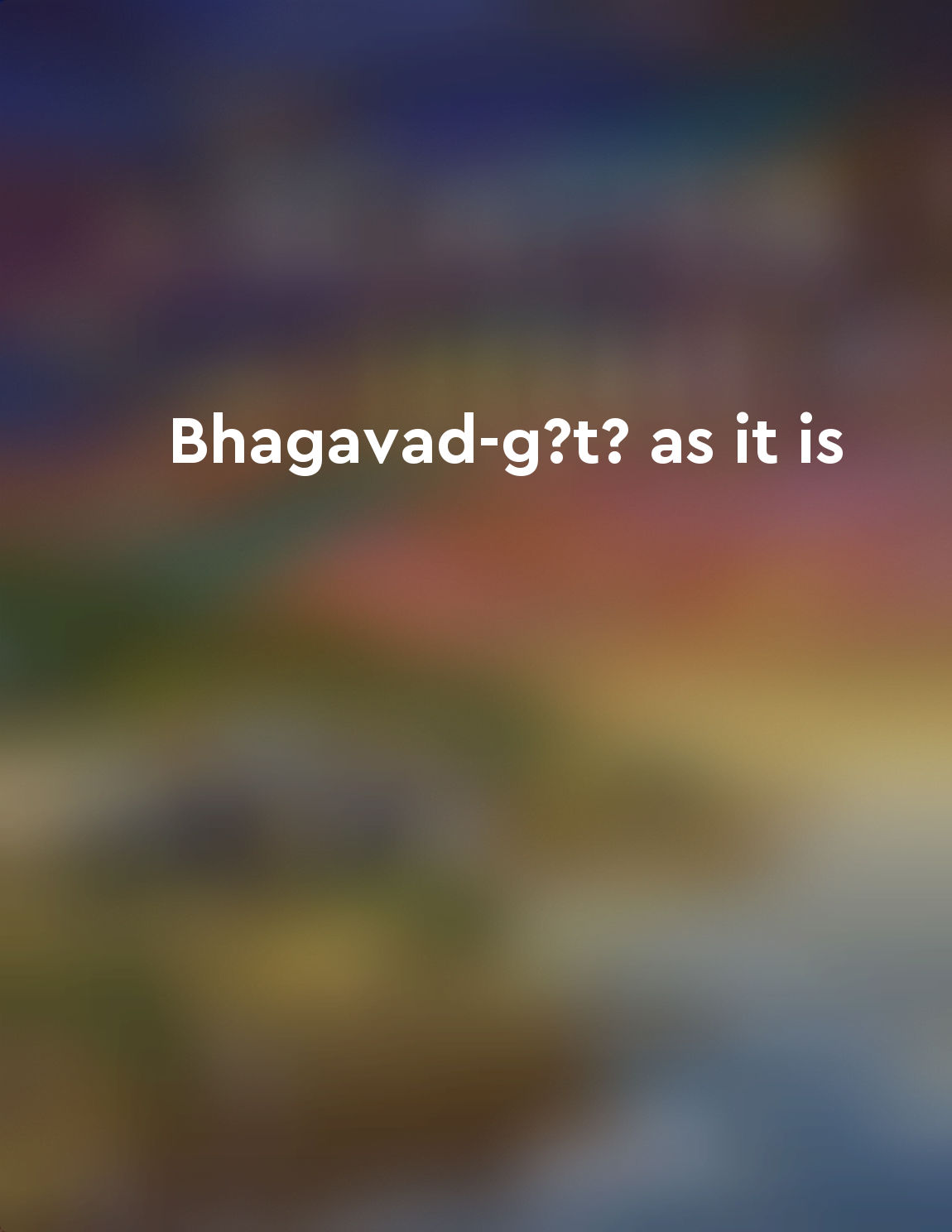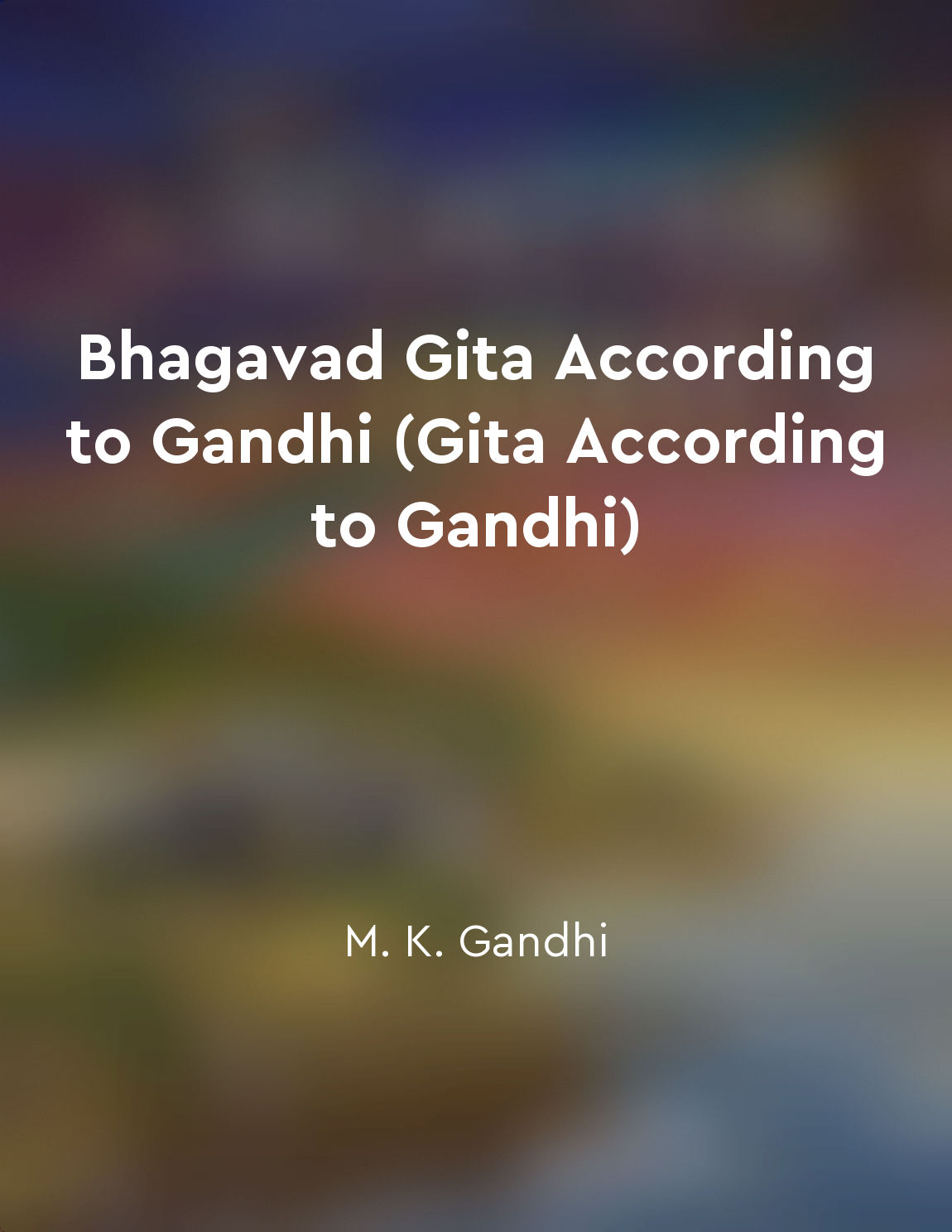Importance of selfless action from "summary" of The Bhagwat Gita by R. R. Varma
The Bhagwat Gita emphasizes the significance of performing selfless actions without any attachment to the outcomes. It teaches that true fulfillment and inner peace can only be achieved through actions that are performed without any selfish motives. When individuals engage in actions solely for personal gain or recognition, they become bound by their desires and ego, leading to suffering and discontentment. By practicing selfless action, individuals can transcend their egos and connect with their higher selves. This allows them to act with compassion and empathy towards others, without expecting anything in return. Selfless actions not only benefit the individual performing them but also contribute to the greater good of society as a whole. Through selfless actions, individuals can cultivate a sense of unity and interconnectedness with all living beings. The Bhagwat Gita teaches that selfless actions are a path to spiritual growth and enlightenment. By renouncing attachment to the fruits of their actions, individuals can free themselves from the cycle of karma and attain liberation. Selfless actions help individuals cultivate virtues such as humility, generosity, and selflessness, which are essential for spiritual evolution. Selfless actions also help individuals develop a sense of detachment from their desires and ego, allowing them to act in accordance with their true nature. By letting go of attachment to the outcomes of their actions, individuals can experience a sense of inner peace and contentment. Selfless actions enable individuals to align themselves with the divine will and fulfill their purpose in life.- The concept of selfless action is central to the teachings of the Bhagwat Gita. By practicing selfless actions, individuals can transcend their egos, connect with their higher selves, and contribute to the greater good of society. Selfless actions are a path to spiritual growth, enlightenment, and liberation, allowing individuals to experience true fulfillment and inner peace.
Similar Posts
The book aims to help readers understand the profound wisdom of the Geeta
The Bhagavad Gita, often referred to as the Geeta, is a sacred text that offers profound wisdom and guidance to those who seek ...
Finding inner peace and contentment
The concept of finding inner peace and contentment is a central theme in the teachings of The Bhagavad Gita. Inner peace is not...
Surrendering to the flow of life nurtures wisdom
The understanding that arises from surrendering to the flow of life is a crucial aspect of wisdom. When we resist the natural r...

Concept of surrender
The concept of surrender is a crucial aspect of spiritual practice, particularly highlighted in the teachings of the Bhagavad-g...

Serve others without expectation
The Gita teaches us the importance of serving others without expecting anything in return. When we serve others selflessly, wit...

Recognizing the supreme authority of God
Recognizing the supreme authority of God means understanding that He is the ultimate controller and the source of all creation....

Striving for excellence in all endeavors is a key principle
The Bhagavad Geeta emphasizes the importance of striving for excellence in all endeavors. This principle serves as a guiding li...

Detachment from outcomes
Detachment from outcomes is a fundamental teaching in the Bhagavad Gita. It emphasizes the importance of performing one's duty ...
Overcoming desire and attachment
The wise man lets go of all desires. By doing so, he finds inner peace and contentment. He is not attached to the fruits of his...
Embrace unity
The concept of embracing unity is a central theme in the teachings of the Bhagavad Gita. Unity is not just a theoretical idea o...

